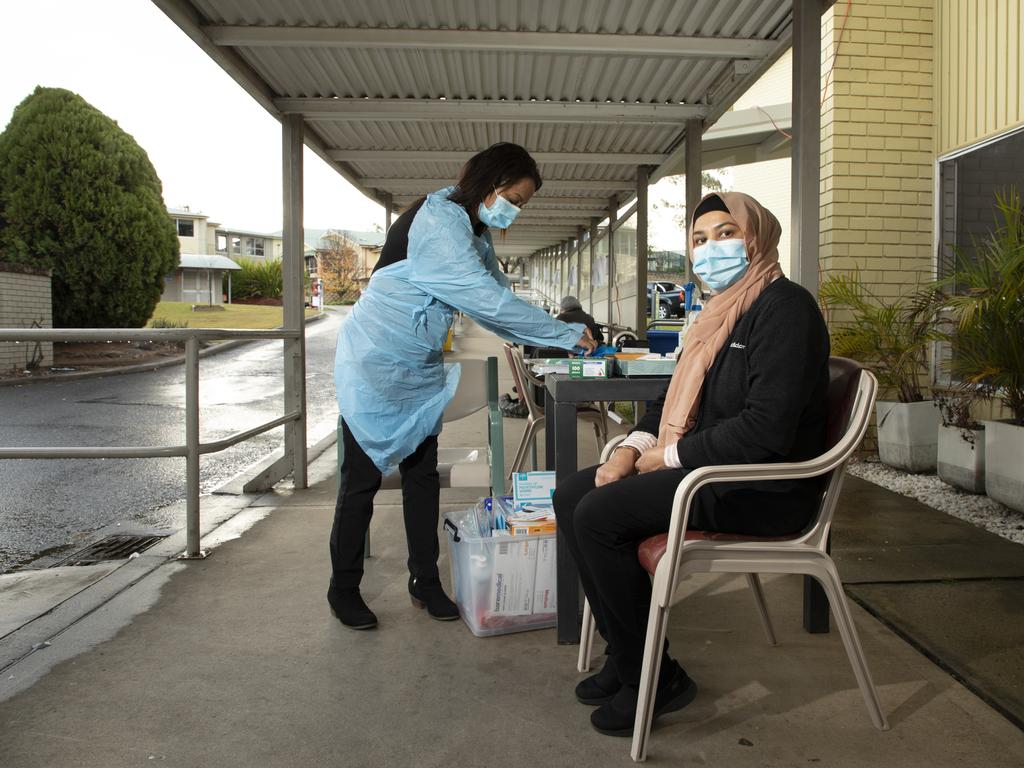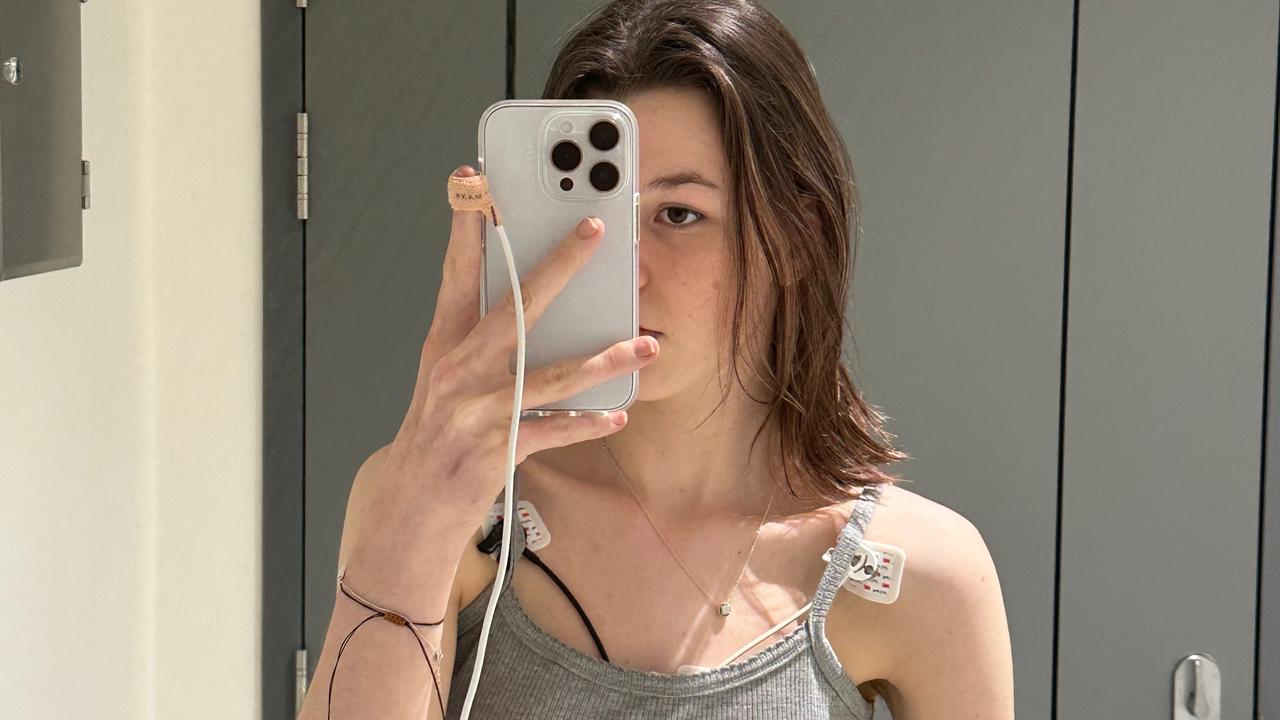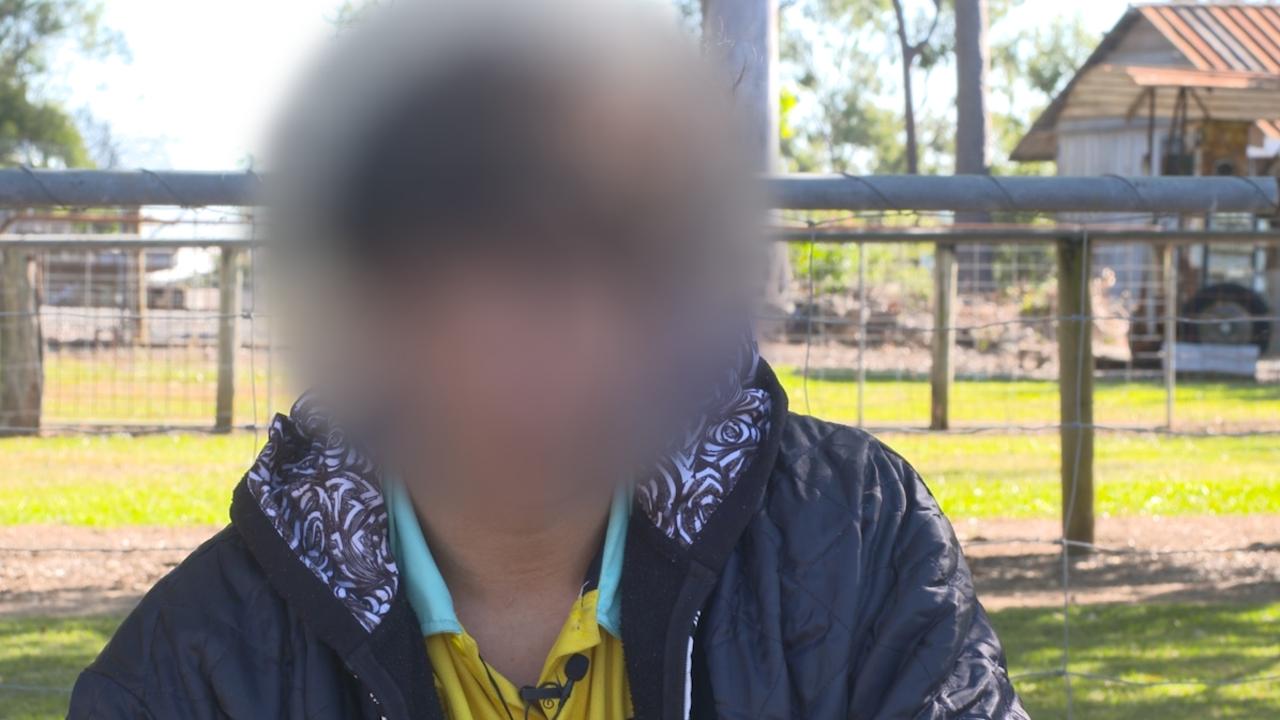Rapid antigen tests for Covid rolled out in SA – but how do they work?
Rapid antigen tests for Covid will be used to test interstate truckies, despite false readings. Here’s how they work.
Rapid antigen tests will play a vital role in dealing with Covid-19 in the future, but a national plan is needed for how to use them, the Australian Medical Association says.
SA Health has no plans to expand its use of the tests, which provide rapid turnarounds, but are not as accurate, beyond truck drivers.
The federal government has said the tests could be available to buy in pharmacies before Christmas.
Dr Chris Moy, the Adelaide-based vice-president of the AMA, said the tests would have “an increasingly important place in the overall approach to living with Covid – it has a role place in our evolving management of Covid-19”.
But he said a national plan was needed for how best to use rapid antigen tests in homes and businesses.
“The tests will have a role in how business, workplaces and other public environments manage after borders are lifted,” he said.
“Rapid antigen testing is not as accurate as the polymerase chain reaction. Its accuracy can vary, based on the training of the person administering the test. Rapid antigen tests generally pick up people when they are most infectious.”
Dr Moy said “false negative” rates were a key issue. “Even one false negative is a huge issue.”
Rapid antigen tests explained
– Melissa Iaria
WHAT IT IS
Rapid antigen tests (RAT) detect the presence of certain proteins of the Covid-19 virus in symptomatic patients.
The tests can be performed by health professionals outside of a lab and produce a result within 15 to 30 minutes.
The RAT can detect the virus in the acute phase of infection, especially in the week before symptoms are apparent, and the first week of symptoms being apparent.
Rapid COVID-19 antigen testing has been in use for some time now in the US and overseas.
The Therapeutic Goods Administration has approved a significant number of rapid antigen tests.
HOW IT IS DIFFERENT FROM PCR
Polymerase chain reaction tests, known as PCR tests, are considered the gold standard for diagnosing Covid-19.
These tests have a higher sensitivity and can detect old remnants of the virus.
PCR tests detect the presence of the genetic material of the actual virus and are good at finding the virus early. They can sometimes even detect the virus in someone before they fall ill.
However unlike RAT, which provides a rapid result, PCR tests can take hours, or sometimes days, to get results.
As well as providing quicker results, antigen tests are also cheaper and designed to be used at point of care.

WHAT RESEARCH SHOWS ABOUT RAT ACCURACY
Although Rapid Antigen Tests provide a rapid result, there is a risk of false positive and false negative results.
Therefore, it cannot be used as the only way to diagnose a COVID-19 infection and any positive rapid antigen test result must be confirmed by the gold standard PCR test.
Unfortunately, the one swab cannot be used in both tests.
Also, it is not acceptable to just repeat the rapid antigen test in the hope of the second test being negative. Any positive result needs follow up with a PCR test.
POTENTIAL RAT USES
Over the past few months there has been an expansion of rapid antigen testing for use in the health and non-health sectors to minimise risks of outbreaks.
However, there are plans to ramp up rapid antigen testing in the future, potentially enabling pharmacy-based testing in coming months and at a later stage, possibly home or self-testing, but these changes will require law changes.
RAT could in future be used in places where lots of people pass through, for example, airports, schools, industry settings and events.

ADVANTAGES AND DISADVANTAGES OF WIDESPREAD USE OF RAT
Rapid antigen tests are quick and easy to perform, with turnaround times of 15 to 30 minutes.
At this stage of the pandemic, authorities are encouraging people with possible Covid-19 symptoms to have a PCR test.
But once vaccination coverage in Australia reaches higher levels, and restrictions are lifted, RAT will be useful in situations where crowds pass through.
However, we know the tests are less sensitive than the current gold standard PCR test, meaning it’s possible some cases of Covid will be missed.




